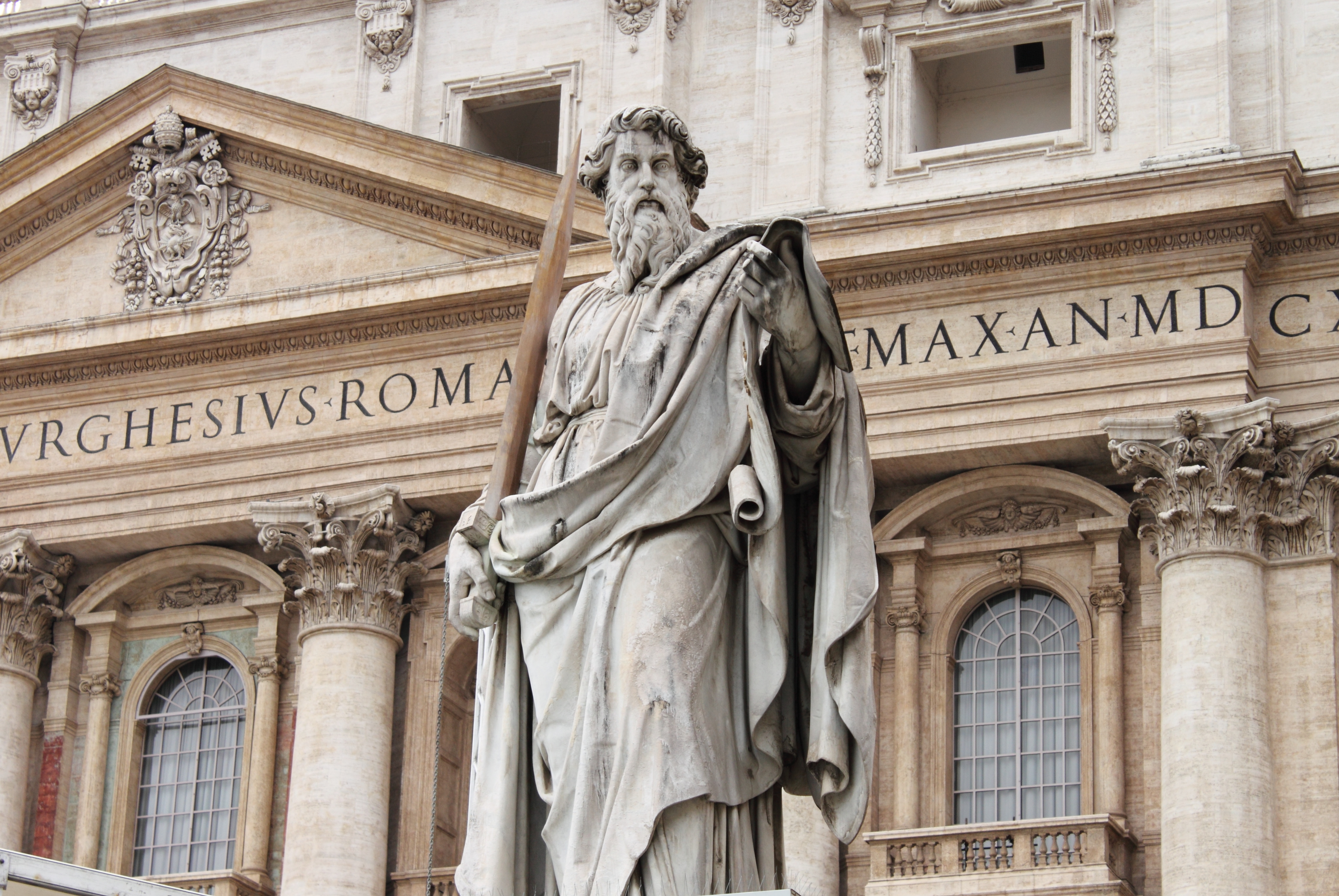
Weak Man, Strong God: A Familiar Promise
Published June 30, 2023
“And we know that God causes all things to work together for good to those who love God, to those who are called according to His purpose.” Romans 8:28
For good reason, Romans 8 is one of, if not the, most famous chapters in the entire Bible. Second maybe to John 3:16, Romans 8:28 is probably one of the most familiar promises in the Bible to Christians. It is a promise that believers love to quote and refer to often, as it should be. It is a wonderfully precious promise that has been soul-stirring and courage-inducing to Christians ever since Paul wrote these famous words in his letter to the church of Rome. It is certainly a promise that has comforted me through many different seasons and trials of life. I am very grateful for the truth that God causes all things to work together for good to those who love God, to those who are called according to His purpose. I also believe that there is more to the promise than we first realize, and that is exceptionally good news – especially when you are in the middle of a season of deep grief and sorrow. As our family most recently endured one of those kinds of seasons, it was easy for me to become consumed by the weight of our circumstances. Every time it seemed like we were making progress, we would be delivered another blow or setback. Seeing Liberty suffer day in and day out without any relief in sight was almost unbearable. And I felt completely powerless to be able to help her in any significant or tangible way. As a father, that internal struggle was debilitating. I would meditate and pray often on many promises in God’s Word, and Romans 8:28 is one I was clinging to for dear life.
Principles of Interpretation:
Before we go any further, there are some natural questions that the reader has to consider in order to understand and apply any of the promises that are found in God’s Word. For example, does this promise apply to all believers at all times or was this a specific promise only for the immediate audience? What is the surrounding context of this particular promise? For the purpose of understanding Romans 8:28, specifically, what is the good that Paul is referring to? Does God define the “good” in the surrounding verses? The temptation with a promise like this is to take the verse out of context and then interpret the promise either narrowly or incorrectly. In this example, the consequences can be especially dangerous because my wrong understanding can make God’s promise seem void or unreliable (we can be assured that this conclusion is always wrong because God’s promises are as reliable as His unchanging, faithful character). If I have a certain expectation of how God “should” do things or subjectively define what is “good,” then I am setting myself up for deep disappointment and making God into a liar. These conclusions are especially devastating with an enduring trial that continues to beat down your weary soul. Thankfully, there is rich and deep theology in this passage that we can anchor the hope and confidence of our hearts to endure any season of suffering by God’s grace. Many theologians have spent their lifetime unpacking these truths for the benefit of the church. My hope is to share some of the insights that have brought deep comfort to my own soul.
The brilliance of Paul’s letter to the Romans:
The letter to the Romans is many Christian’s favorite book of the Bible because of the airtight display of the utter ruin and hopelessness of man as a result of sin, which is gloriously overshadowed by God’s grace, God’s sovereignty, the glory of the Gospel, and ultimately the wisdom and power of God to accomplish salvation through Christ for those who were formerly His enemies. In Romans 1-7, the apostle Paul masterfully communicates and expounds these truths. Then in Chapter 8, Paul pulls back the curtain to show every Christian what life in Christ means for the here and now, the reality of their new identity, the hope that they have for the future, and the ways that God will actively ensure that what He started in the life of a believer He will most certainly complete. Picking up in Romans 8:16-17, Paul writes, “The Spirit Himself testifies with our spirit that we are children of God, and if children, heirs also, heirs of God and fellow heirs with Christ, if indeed we suffer with Him so that we may also be glorified with Him.” I think that every Christian who sits under good Bible preaching accepts at least conceptually to expect suffering in their Christian walk. All Christians have experienced suffering at some level. And yet over and over again, I am personally surprised and even frustrated when I am confronted with trials or a season of suffering. However, the line of reasoning that Paul uses in verses 16-17 is that the Spirit testifies with our spirit that we are both children of God and heirs of God. One of the main evidences that we are genuinely children of God is that we suffer as Christ did. No mere man will ever be able to say that they suffered to the extent that Christ did, not even Job. Yet every Christian should be able to suffer with hope because that is tangible evidence that we actually belong to God as His children. God did not spare the Son from having to suffer in His incarnation as a man. God had purpose for Jesus’ sufferings. In the same way, God will not spare us from having to suffer in this earthly pilgrimage. In the same way, God has purpose for our sufferings.
Present Tension:
Romans 8:18 says, “For I consider that the sufferings of this present time are not worthy to be compared with the glory that is to be revealed to us.” This, in and of itself, is a tremendous promise with implications that stretch far beyond what we can conceive or imagine. We can pile every trial, every affliction, every season of suffering; one on top of the other – and be comforted by the fact that it won’t compare to the glory that is to be revealed. Or, to say it another way, the glory that awaits every believer will far surpass even the greatest level of suffering that we endure in this broken and fallen world, even a lifetimes worth! One initial observation as to why this is true is that our suffering has a time limit and will eventually come to an end. The glory that is to be revealed will be infinitely greater than our suffering qualitatively, AND that infinite glory is everlasting. It will never end. Glory upon glory forever. And yet Paul even has something to say about the dilemma between the hope of glory and the deep anguish of life in a world still stained by sin. Romans 8:23-24 says, “For we know that the whole creation groans and suffers the pains of childbirth together until now. And not only this, but also we ourselves, having the first fruits of the Spirit, even we ourselves groan within ourselves, waiting eagerly for our adoption as sons, the redemption of our body.” God created this world perfect. No sin. No crying. No mourning. No pain. No death. Man enjoyed full access to God’s presence and communion with Him. But then, as a result of the fall, everything changed. There was no part of God’s creation that remained untouched by sin. As a result, God cursed the world, and all creation still groans as a result of the fall. The incarnation of Jesus Christ has initiated the kingdom of God. In His death, resurrection, and ascension, Jesus has defeated sin and death, and has all authority over heaven and earth. Yet creation still groans. The fullness of God’s restoration of His creation still awaits consummation. Even His redeemed people still groan as they experience life in this sin stained world. But there is more hope.
The Glorious Promise: Explained
Romans 8:28-30 says, “And we know that God causes all things to work together for good to those who love God, to those who are called according to His purpose. For those whom He foreknew, He also predestined to become conformed to the image of His Son, so that He would be the firstborn among many brethren; and these whom He predestined, He also called; and these whom He called, He also justified; and these whom He justified, He also glorified.” This brings us all the way back to the original promise that we hold so dear. For now, this world is still marked by sin and groaning. For now, we still eagerly wait for the fullness of God’s mighty work of “re-creation.” And we suffer with purpose. Romans 8:28 explains that there isn’t a moment in the life of the believer that God doesn’t purposefully work for good. This is no uncertain, subjective, or ambiguous “good.” We are not left to our own imaginations to define good for ourselves. The greatest and most wonderful work that could be accomplished in anyone is being made like Jesus. The apostle Paul explains that the purpose for every believer that God has chosen is that they would be conformed into the image of His Son Jesus Christ. In His wisdom, God purposefully works together and ensures that everything, every single thing in the life of the believer makes them more like Jesus. That is the good of Romans 8:28! And not only that, but God has promised that the final outcome for every single person that He has chosen is glory. This is the golden chain of redemption. God is the actor. Those whom He foreknew, He predestined. Those whom He predestined, He called. Those whom he called (effectually), He justified. Those whom He justified, He glorified. God Himself has guaranteed our hope of glory. This glory will infinitely surpass and exceed all of the suffering that we have to endure. The suffering is the very means that God uses to transform us into the likeness of Christ. God is preparing us for eternal life with Him. This is amazing news for weary pilgrims. This is glorious hope for fellow sufferers. God is good. God is sovereign. And He is purposefully working to bring His people to glory. This is the hope my weary soul needed through a devastating season of suffering. This is the hope my weary soul needs until glory.
“What then shall we say to these things? If God is for us, who is against us?” Romans 8:31




0 Comments